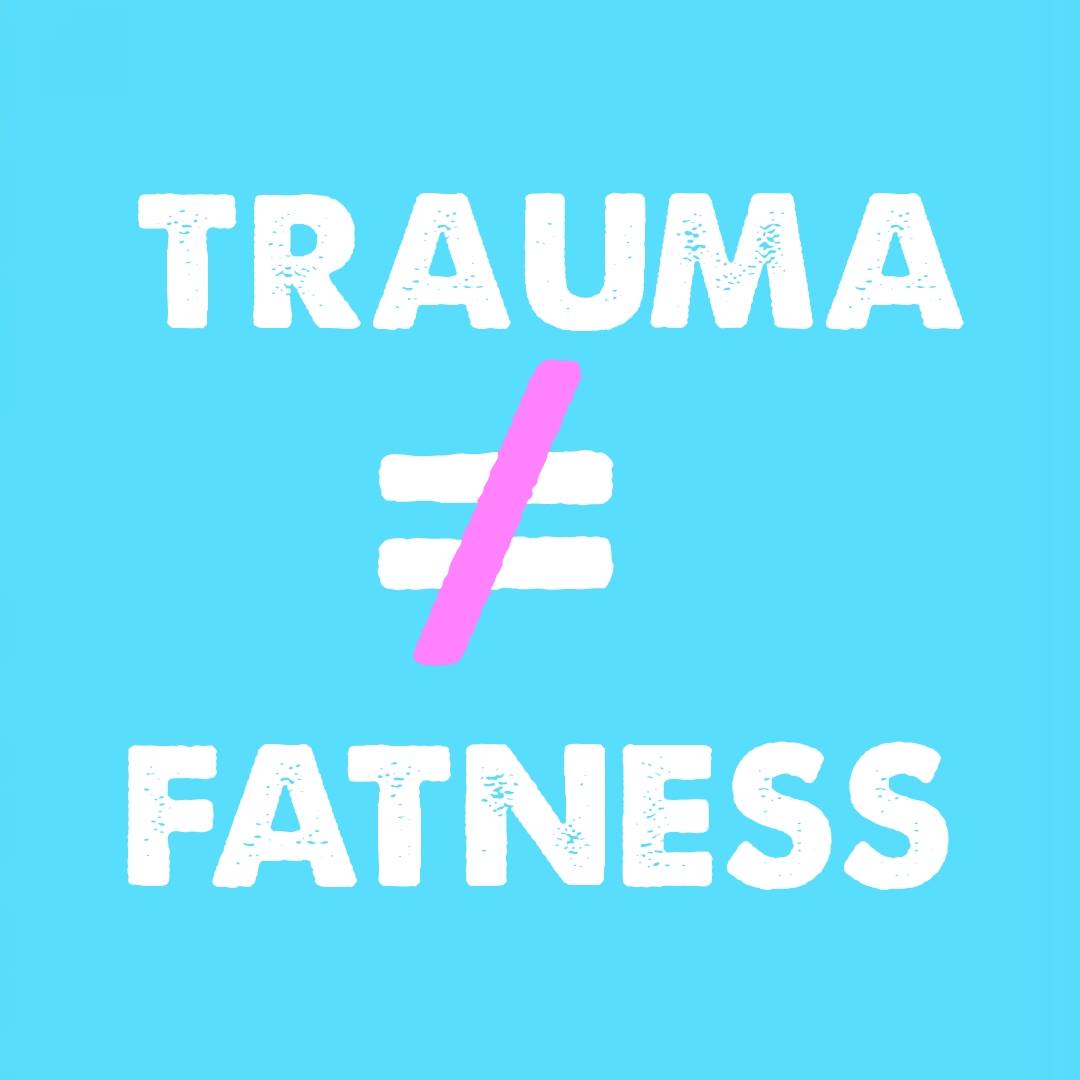|
I've seen the fatness-as-a-product of trauma conversation pop up about 5 times in my feed this week, and though I have no desire to belittle the truly stultifying realities and effects of trauma (sexual and otherwise), I would like to offer the following 4 additional frameworks to consider as this conversation is happening:
1. The More Marginalized a Woman Becomes, the Greater Her Risk of Sexual Assault Becomes The idea that someone can "protect" themselves from male attention or sexual assault through being fat patently denies the, I think, fairly conclusive work that feminists of colors (particularly feminist indigenous studies) have done to show that the more marginalized a woman gets the more at risk she is of experiencing assault. Because as women become more marginalized, they become more easily deniable witnesses and become more dehumanized - conditions that facilitate violence. 2. Fat Women Are Actually Sexually Desirable & Have Lots of Sex The idea that fatness is universally undesirable is also patently false and a delusion of fatphobia. There's also pretty good evidence that fat women have sex at similar rates to their thin counterparts, but are less likely to have meaningful romantic relationships than their thin counterparts because of stigma. 3. Emotional Eating & Fatness Are Not the Same Thing I'm troubled by the conflation of "emotional eating" and being fat. Those are *two separate things.* Typically "emotional eating" only becomes visible when the person is fat. The eating behavior of fat people is always scrutinized fair more harshly than the eating behavior of thin people. There are many thin people who would be considered "over eaters" or "emotional eaters" but their eating behavior is rendered invisible through fatphobia, and fat people's eating behavior is already always rendered hyper-visible through fatphobic confirmation bias. 4. Fatness Is Not Deviation or Failure The notion that fatness is already always deviant or unnatural - or requiring explanation or apology - is deeply pathologizing and stigmatizing. Fat is a standalone identity and existence - not a deviation or failure to be thin. I want to conclude by saying that I do not wish to belittle or question the lived experiences of people who have experienced trauma. Nor do I want to dictate how people experience the period following trauma, but I think many times people make sense of trauma using pre-existing/pre-fabricated cultural frameworks that are frequently deeply bigoted - which I feel exacerbates the experience of trauma. My intention and hope is, rather, to trouble the analysis/framework that seeks to pathologize the body of the traumatized. In so doing, I hope to reduce the ripple effects of trauma through de-stigmatizing body diversity. |
Virgie Tovar
Virgie Tovar, MA is one of the nation's leading experts and lecturers on fat discrimination and body image. She is the founder of Babecamp (a 4 week online course focused on helping people break up with diet culture) and the editor of Hot & Heavy: Fierce Fat Girls on Life, Love and Fashion (Seal Press, 2012). She writes about the intersections of size, identity, sexuality and politics. See more updates on Facebook. Archives
April 2021
Categories
All
|




 RSS Feed
RSS Feed